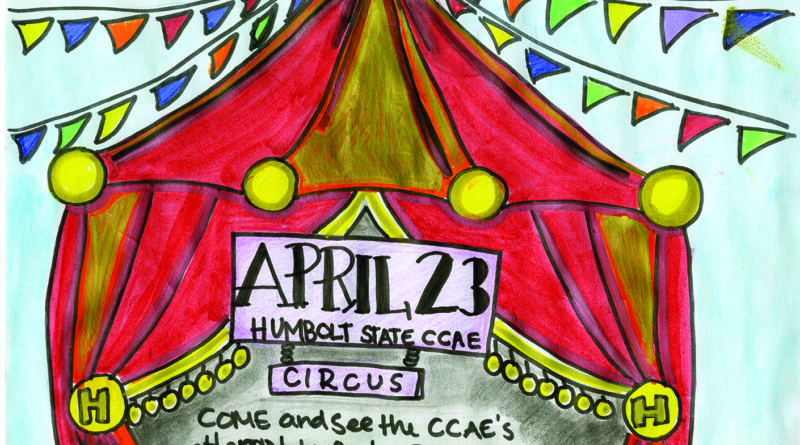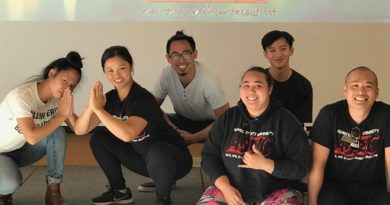No Money, No Coordinator, No MCC?
After two months without a coordinator, the MultiCultural Center (MCC) has temporarily reassigned Mona Mazzotti, the publicity promotion and outreach specialist for the Cultural Centers for Academic Excellence (CCAE), as coordinator of the MCC while their search for a permanent coordinator continues.
During January and February of this year, there was no official staff appointed to oversee the MCC, leaving student staff in an overwhelming state. The previous search committee expected to have someone come in by mid-February but due to candidates pulling out, there was no decision made.
“We are fighting for a coordinator that is going to be here for the next 10 years, we don’t want people coming in and out. We just want a clear, concise timeline.”
“I just was over here doing it,” Mazzotti said. “I was also already reassigned to the AACAE, and then Wayne realized that they needed to have a more permanent presence instead of me just coming over for meetings.”
Mazzotti officially became the MCC coordinator on March 1.
Due to the failed execution of the last search committee, student staff including Angelica Muñoz came together to create a letter of concerns which they sent out to administration.
“Last time it failed because of how unorganized it was with no student or coordinator input,” Munoz said. “And since nobody was communicating with us from above, we wanted to communicate our concerns with them so that they could know what was happening here.”
After the letter was sent out, Mazzotti was reassigned as coordinator, and the application for the coordinator position was officially closed on March 19.
“We have a little bit more of a structure now, but we are fighting for a coordinator that is going to be here for the next 10 years,” Munoz said. “We don’t want people coming in and out. We just want a clear, concise timeline.”
Timeline for the new search
Corliss P. Bennett, the director of the CCAE, finalized the search committee the week after spring break and hopes to have the final candidates come to campus by the week of April 23.
“The goal, hopefully, is to interview the week of the 23rd. That way no matter what, even if I don’t say who it is after finals, everyone will have seen them,” Bennett said. “My hope is that they will be in place this summer so that when school starts we are on point.”
The candidates will be interviewed by Bennett, the VP of Student Affairs, the coordinators of the CCAE, the MCC student staff, and other offices that work with the MCC.
“Ultimately, I will make the decision of who will be our new MCC coordinator, but I need that input,” Bennett said. “So when those town hall meetings happen please come, please come and write up your evaluations, and in that way, I can make a good decision.”
The town hall meetings will be an hour and a half for candidates to do a presentation and Q&A. There will be a university invitation sent out in advance to notify anyone interested in attending. Applications are currently being processed by human resources.
Origins of the MCC
The MCC started in 1993 through student protest as mainly students of color gathered at Founders Hall and advocated for a place of their own on campus. Marylyn Paik-Nicely, who was the MCC coordinator from 1997- 2015, took part in maintaining the MCC’s structure.
“I saw that specifically, our students of color that were coming from urban areas really needed a sense of community and we really worked at that,” Paik-Nicely said. “I thought it was very important to have this feeling of a home away from home and to have this place to hang out.”
Budget cut impact
The MCC’s hours have been cut to 40 hours a week, which changes their operating times. They will now be closing two hours earlier than the current hours of operation. The MCC is also going to minimize the number of positions available for student workers.
“Instead of laying off workers we are cutting back hours, and it is unfortunate but we are cutting all over the campus,” Bennett said. “We are also trying to streamline the positions in each office so that we can stay in budget.”
Where’s the student voice?
Leadership and student voice is the foundation of the MCC. For some, it is especially important for students to be heard during these difficult times. Amy Salinas Westmoreland, former coordinator of the MCC during 2015- 2016, is very angry to see how the MCC is being handled right now and only hopes that students continue to voice their opinion.
“A failure of a center to operate is a huge indicator of bad leadership,” Westmoreland said. “The longer you keep the students from having leadership within that center, the longer you silence those people, and the longer you weaken that center.”





